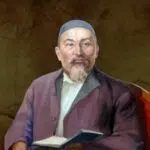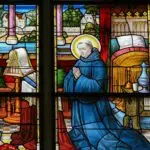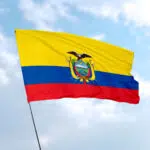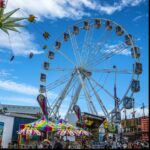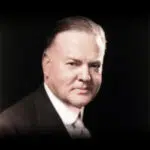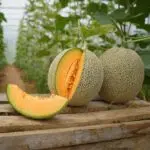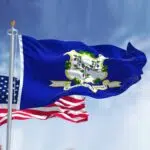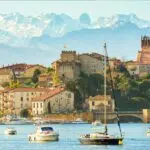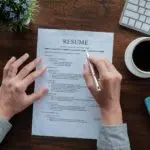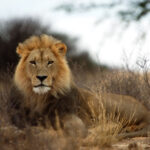Ecuador’s Independence Day is a national public holiday that is celebrated every year on August 10. In Spanish, it is known as ‘Día del Primer Grito de Independencia de Quito,’ ‘Day of Quito’s First Cry of Independence,’ and in other countries of Hispanic America as ‘Primer Grito de Independencia Hispanoamericano,’ or ‘First Cry of Hispanic American Independence,’ as the Ecuadorians were the first ones to do so in Latin America and inspired other countries. On this day in 1809, the citizens of Quito, the current-day capital city of Ecuador, rebelled and declared their independence from Spain. Ecuador is Spanish for ‘the equator,’ which neatly describes its geographical place on the globe.
History of Ecuador Independence Day
The Spanish, led by Francisco Pizarro, took over what is now Ecuador from the Inca in 1532 after an Incan civil war, and in 1563 Quito became an administrative region of Spain. After nearly three hundred years of Spanish rule, the citizens of Quito, which had already seen several political revolts in 1592 and 1765, led by Juan Pío Montúfar, Quiroga, Salinas, and Bishop Cuero y Caicedo, overthrew Manuel Ruiz Urriés de Castilla y Pujadas, president of the Royal Audiencia of Quito on August 10, 1809. They formed a provisional government junta in the house of Manuela Cañizares that same day.
However, only the nearest cities, such as Ibarra, Ambato, and Riobamba, joined their cause. Guayaquil stayed loyal to the king, and their authorities asked the viceroy of Peru to block the coast of Ecuador. Montúfar, then president of the Junta, felt too pressured and stepped down on October 12. He was replaced by José Guerrero, but on October 24, they had no choice but to give the power back to Ruiz de Castilla. He dissolved the Junta, re-established the Royal Audiencia of Quito, and persecuted and incarcerated the members.
On August 2, 1810, rebels attempted to free the imprisoned members, but they failed and the authorities responded by executing the prisoners. The fight was moved to the streets of Quito and resulted in the deaths of over 200 citizens. This, however, was just the beginning of the fight, and liberator Simón Bolivar felt justified in declaring war on the Spanish authorities. On October 9, 1820, Guayaquil became the first city to gain its independence from Spain. The rest of the country celebrated their independence following their victory at the Battle of Pichincha under the command of Bolívar, on May 24, 1822.
Ecuador Independence Day timeline
Rebels overthrow the Royal Audiencia of Quito and form a provisional government Junta.
Unable to expand, they are forced to give the power back to the viceroy, who dissolves the Junta, re-establishes the Royal Audiencia of Quito, and persecutes and incarcerates the members.
They fail and authorities respond by executing the prisoners, the fight moves to the streets of Quito and results in the deaths of over 200 citizens.
This is the first city in Ecuador to successfully become independent from Spain.
The combined forces of Peru and other colonies that achieved their independence, commanded by Simón Bolivar, win the Battle of Pichincha.
Ecuador Independence Day FAQs
Who were the first people in Ecuador?
Before the invasion of the Inca, there were diverse ethnic groups divided into clans like the Machalilla, the Pasto, the Caras, and many others.
What is Ecuador's nickname?
It’s called “The Republic of the Equator.”
What is Ecuador's motto?
Their motto is “Dios, patria y libertad,” which means “God, homeland and freedom” in English.
How to Observe Ecuador Independence Day
Attend an event
On this day, many cities in Ecuador host parades, cultural festivals, and concerts. If you’re an Ecuadorian living in the United States, New York City hosts the Ecuadorian Parade and Ecuadorian Festival in the weeks right before and after Ecuadorian Independence Day.
Eat traditional Ecuadorian food
Common foods include ‘ceviche,’ yucca bread, ‘encebollado,’ ‘patacones,’ and a goat stew called ‘Seco de Chivo.’ You can find them at the cultural festivals we mentioned, or make them yourself!
Enjoy ‘pasillo’ music
Known as the "rhythm of Ecuador," it provides the soundtrack to many of these events and is often accompanied by dancers dressed in traditional and colorful loose shirts known as guayaberas. If you can’t go to these events, you can simply look for videos on YouTube to hear the music and see the dancing.
5 Important Facts About Ecuador
It has some of the highest biodiversity
It has more plant and animal species than all of Canada and the United States, even though it’s only around the size of Arizona.
Rights of Nature
Ecuador was the first country to officially recognize the rights of nature as constitutional, saying that it has the “right to exist, persist, maintain and regenerate its vital cycles.”
It’s the closest country to space
The summit of Mount Chimborazo, Ecuador’s highest mountain, is the farthest point from the Earth’s core because it’s located along the equatorial bulge.
It’s the world’s largest exporter of bananas
In 2011, it accounted for up to 29% of all bananas exported.
At least 14 recognized languages are spoken
The official language is Spanish, while the other 13 are indigenous, and include Quichua and Shuar among others.
Why Ecuador Independence Day is Important
It’s a day to celebrate Ecuador culture
Whether you’re from Ecuador or have Ecuadorian heritage, this is the best day to celebrate their history and culture. Art, literature, film, music, dance, food, anything goes!
It’s an important day to all Latinos
Ecuador was the first country in Latin America to declare its independence, and it’s known in other countries as ‘Primer Grito de Independencia Hispanoamericano,’ or the ‘First Cry of Hispanic American Independence.’ This is something many Latinos don’t know, so it would be great if this day’s celebrations became popular all over the region.
It’s a reminder of what Latin America can accomplish united
Ecuador’s first declaration of independence didn’t work out, but it paved the way for other countries to do it successfully. And in return, they assisted Ecuador in the Battle of Pichincha and let them secure their independence.
Ecuador Independence Day dates
| Year | Date | Day |
|---|---|---|
| 2025 | August 10 | Sunday |
| 2026 | August 10 | Monday |
| 2027 | August 10 | Tuesday |
| 2028 | August 10 | Thursday |
| 2029 | August 10 | Friday |

